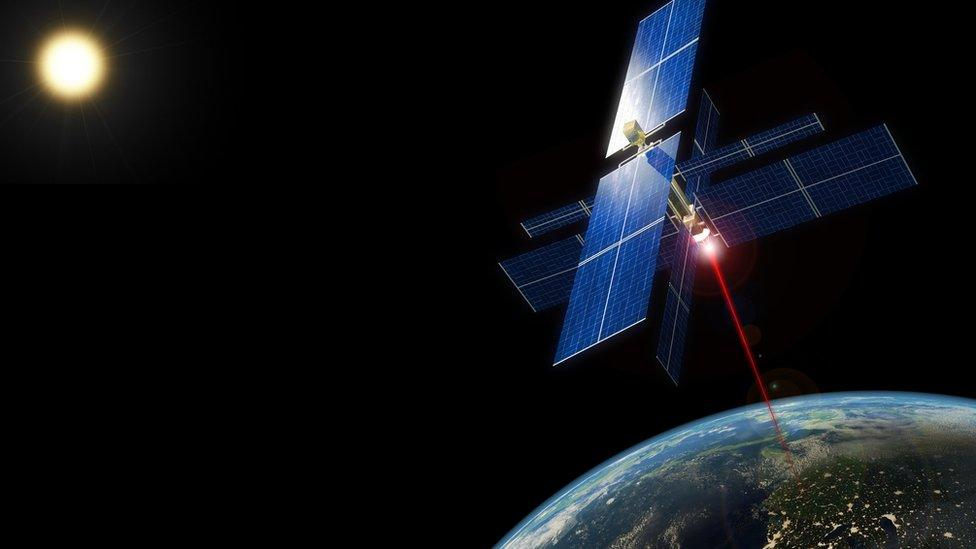Solar power stations in space could help save the planet
- Published
- comments

The UK government is considering a plan to build mile-wide solar power stations in space that can send beams of energy back down to Earth.
The plans involve five huge stations floating 24,000 miles above the planet, each weighing several thousand tonnes - that's heavier than 20 blue whales, the world's largest animal!
Each solar power station would be made from tens of thousands of smaller pieces, needing 200 separate rocket launches to send the pieces into space, where they will be put together by robots.
If this all sounds very futuristic, that's because it is. It's hoped the stations will generate 15 per cent of the country's electricity supply by the year 2050, that's enough power for four million UK homes.
Speaking about the plans, government science minister Amanda Solloway said: "Solar space stations may sound like science fiction, but they could be a game-changing new source of energy for the UK and the rest of the world."
How will it work?
The stations would use thousands of mirrors to reflect sunlight onto solar panels. The panels would convert that energy into high frequency radio waves which would be beamed back to Earth and converted into electricity.
In the past, the weight of sending that equipment into space would mean a huge amount of fuel would be needed, making the cost of rocket launches of this kind absolutely massive. But private companies, such as Space X, has brought the cost down and made plans like these more likely to happen.
Why is it important?
The government and the UK Space Agency is interested in how the technology could help the country keep its promise to stop burning fossil fuels to create power because it causes global warming.
As part of a plan to cut emissions by 2050, the UK has started generating electricity from sources like wind and nuclear power, that produce almost no carbon dioxide. However the sun provides a constant source of energy with fewer risks or limitations.
Dr Graham Turnock, chief executive of the UK Space Agency, said: "The Sun never sets in space, so a space solar power system could supply renewable energy to anywhere on the planet, day or night, rain or shine. It is an idea that has existed for decades but has always felt decades away.
"The UK is growing its status as a global player in space and we have bold plans to launch small satellites in the coming years. Space solar could be another string to our bow, and this study will help establish whether it is right for the UK."
Related topics
- Published26 May 2019
- Published17 November 2020
- Published12 June 2019
